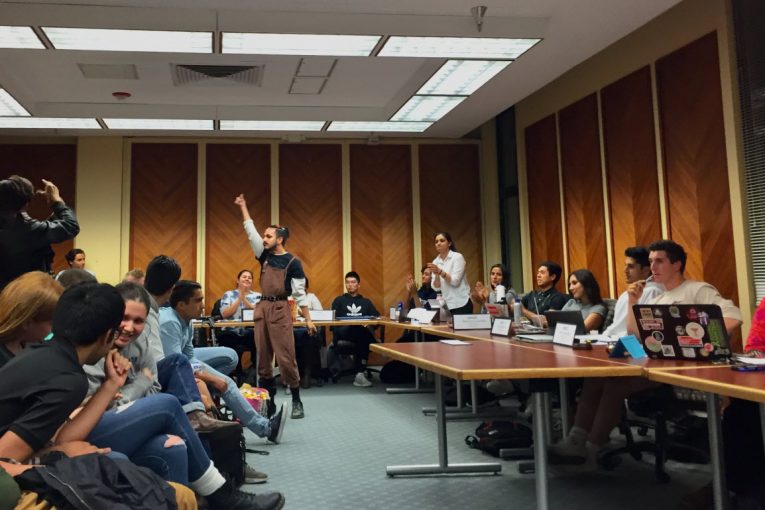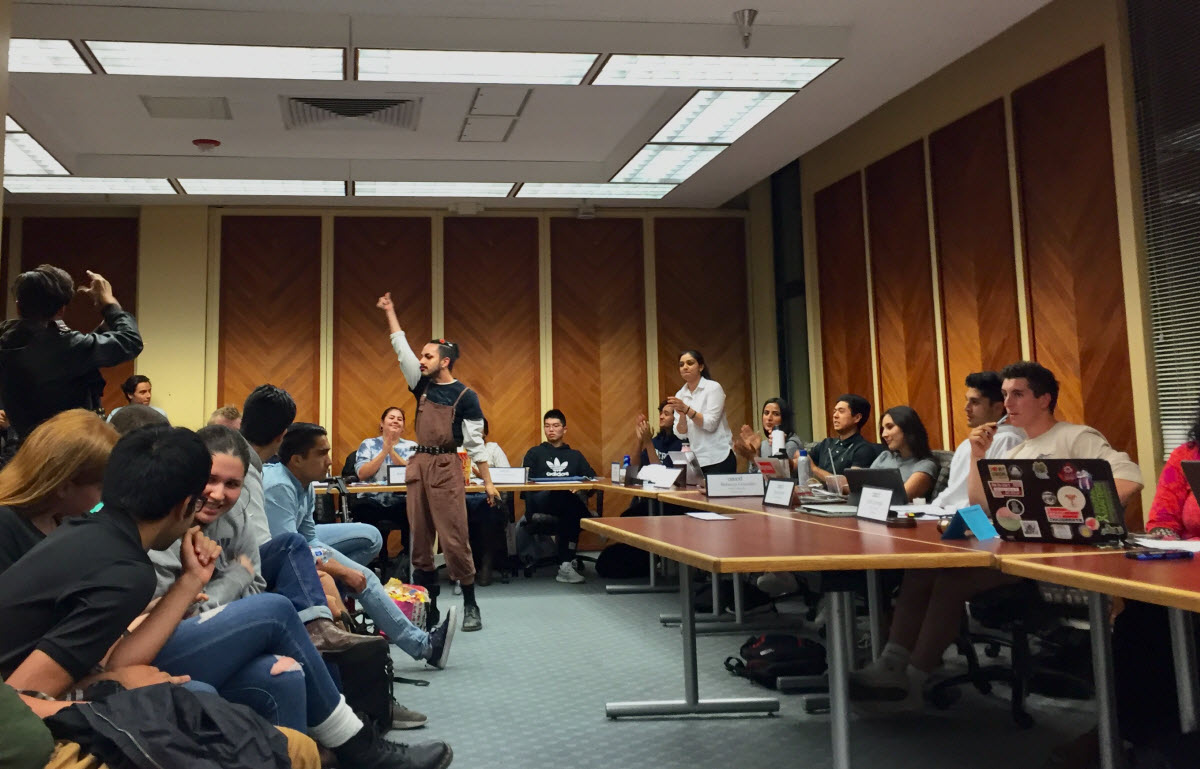

By Raquel Victoria Navarro
DAVIS, CA – Student community leaders and a roomfull of supporters fought for and succeeded in passing Resolution XIV through the Associated Students of UC Davis Thursday night, urging the disarmament of campus police.
The vote came after 19-year-old community member Jennifer Michelle Cedeno-Ornelas was brutally detained by UC Davis Police outside of the campus bookstore just last week, and put UCDPD under investigation.
“This resolution speaks to what we can change in this room, in our campus community, but we cannot ignore that it is part of a larger conversation,” said resolution author Blu Buchanan, a sociology graduate student at UC Davis and key organizer in Students and Workers Ending Racial Violence (SWERV).
Resolution XIV calls on the Associated Students of UC Davis to meet with Chancellor Gary May to express the impacts of policing with lethal weaponry on the student body and to encourage the UC Regents and Office of the President to disarm UC police of lethal weaponry and “support non-police community-based responses to community wellness issues” on campus.
It also demands a commitment to permanently reject participation in the 1033 program, reinstated by the Trump Administration, which directs the Department of Defense to funnel military-grade  weaponry to local law enforcement agencies.
weaponry to local law enforcement agencies.
“With rising militarization on campuses around the globe, and particularly within American institutions of higher learning, we recognize that this disproportionately endangers students of color and Black students in particular,” noted the resolution.
Cited in the resolution are incidents of UC-sanctioned police violence against students including the infamous UC Davis pepper spray incident of 2011 and the less publicized brutal arrest of campus worker David Cole at UC Berkeley during the lawful strike of the American Federal, State, County, and Municipal Employees Local 3299 last February.
The passing of this resolution comes at a time when bills like AB 392, which mandates peace officers to exhaust all non-lethal de-escalation tactics before resorting to lethal force, are making their way through the state legislature, and creating more conversation about police use of force in California, including campuses.
Student calls for the disarmament of campus police have a long history at the University of California. Five years after the fatal Isla Vista shooting that took the lives of six students and injured 14 others at UC Santa Barbara, their Associated Students unanimously passed a resolution to disarm campus police of all “lethal and military-grade hardware” this past March.
In 2016, the Black Student Union at UC Irvine, along with other campus organizations in solidarity, called for the complete abolition of their campus police department. Thus far, the UC Office of the President has not acted on any of these student recommendations, but Davis has just applied some additional incentive for them to consider student input.
Angel Ballesteros, an undergraduate student coordinator for the UC Davis Cross Cultural Center, spoke in adamant support of the resolution at UC Davis, alluding to the recent bookstore incident and incidents of mass school shootings.
“What happened last week further proves that UC Police prioritize protecting property over people. If we disarm police, we get to address real root causes of violence in our societies; namely, toxic masculinity and white supremacy” she stated during public comment.

“This is one avenue of student voice,” said Ballesteros, adding “Having multiple student bodies addressing police violence allows us to imagine alternatives to militarization.”
More widespread engagement around law enforcement reform at universities, attributed to the advocacy and mobilization of students of color (in conjunction with current Capitol affairs) provides a variety of geographical levels of decision-making that affect both campus communities and the state at large, called “multiscalarity, as defined by professor Peter Somerville, policy expert at the University of Lincoln. Somerville wrote in a publication on community and self-governance that “in principle, the number of scales can be infinite, but in practice it is constrained by certain practices in our social system.”
“We have to use evidence to inform good policy and take into account that people are bringing their various communities, their various experiences to campus, so this not an isolated space where these decisions only affect people when they are students. “They cannot be separated from the cases of Stephon Clark and numerous examples of black and brown people brutalized by the police,” said Buchanan.
